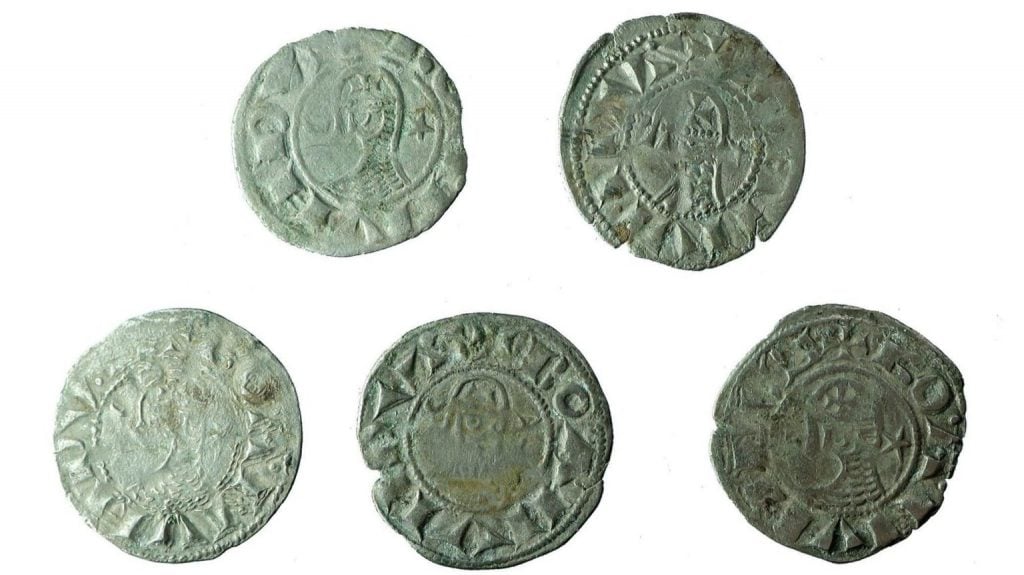Law & Politics
A U.K. Metal Detectorist Admits to Planting Coins He Bought off eBay for ‘Fame’
If the find were real, it would have changed the known history of Wales.

If the find were real, it would have changed the known history of Wales.

Adnan Qiblawi

A metal detectorist, charged with one count of fraud by false representation after claiming to have discovered treasure in a field in Herefordshire, the U.K, has been found not guilty.
On March 11, the Hereford magistrates’ court heard that Michael Jones, 64, of Port Talbot, planted five Medieval coins in a field and claimed to have found them during a metal detecting rally at Oatcroft Farm in Titley in July 2021. Jones had purchased the rare silver deniers for £200 ($250) off eBay.
The coins, known as silver Deniers of Bohemond III, were minted in Antioch in the 12th century during the reign of Prince Bohemond. The prince conquered Antioch, in modern day South Eastern Turkey, from the Turks during the Great Crusades. The deniers depict a knight in chainmail armor and a helmet.
According to experts who testified in court, if the deniers had genuinely been uncovered at the farm, they would have changed the known history of Herefordshire and the Welsh borders.
Peter Reavill, small-finds archaeologist and former Finds Liaison Officer for the county, told the court: “They are very rare and very important, especially if they could be linked to the Knights Templar. Such coins have never been found in the region before.”
A fellow metal detectorist at the rally, Adrian Harris, told the court that Jones had led to him to a section of the field, where Jones swiftly dug up the coins. “I was ecstatic, jumping up and down,” he said, “but Mike wasn’t really shocked.”
When Jones announced his find to the rally’s attendees, claiming them as treasure, his colleagues grew suspicious when no further artifacts were uncovered in the area. One metal detectorist scanned eBay for similar coins and found a listing that had recently sold on the platform. Authorities reached out to the seller and found that the listing matched the exact weight and style of Jones’s alleged discovery.
Jones appeared in the magistrates’ court after entering a plea of not guilty at an earlier hearing in July 2023.
In court, Jones explained that he had faked the find “for the fame and bravado that goes with it.” He added: “It was stupid, I know. It was a feel-good thing. I just wanted to make myself look good. It was a moment of insanity.”
In its final verdict, the court decided that, though Jones acted deceptively, there was no proof he had any intention of making money from the fake discovery and dismissed the charge.
“You did make false representations, but the crown could not prove financial gain, therefore we find you not guilty,” said Sue Furnival, the chairwoman of the magistrates.
Speaking to The Times, an archaeological source characterized the verdict as “disappointing,” adding that “the council paid for an excavation of the find site to see if there were other coins there.”
“His claim of a discovery has cost money in investigations and court time,” they said.